Author: saront
Uncovering Land Governance Challenges in 9 African Countries: NELGA’s Overview of Pastoralism and Small-Scale Farming
NELGA has put out nine country profiles about South Sudan, South Africa, Nigeria, Niger, Burkina Faso, Ethiopia, Tunisia, Egypt, and Mauritania. These profiles give information about pastoralism and small-scale agriculture in these countries. Through research on the current state of land governance in each of these nations, the individual reports have identified policy gaps that could be amended to better support pastoralism and small-scale agriculture.
The profiles also emphasised the significance of regional and international cooperation throughout Africa to enhance land governance structures tailored to local communities’ needs. The profiles included an assessment of existing research on the topics; the effects of climate change; public policy in place to support pastoralism and small-scale farming; the role of women and young people in this space; and regional and international cooperation available to support respective countries. The individual country profiles make recommendations for improving land governance in each country.
NELGA hopes that these reports will help the government improve the way it manages resources while making sure that rights over resources are kept, and international standards are always followed. NELGA keeps working with its African partners to improve how land is managed in all countries involved.
NELGA is Delighted to Unveil its New Website
NELGA is pleased to announce the launch of its new website, www.nelga.uneca.org, which boasts an enhanced user experience and cutting-edge functionality. NELGA has wholly revamped its old website into a new, fully functional, responsive, and dynamic website with expanded functionality and accessibility, resulting in a more comprehensive and dynamic user experience.
The new platform is designed with the support of the German Development Cooperation and has the user in mind, boasting a sleek, contemporary appearance and intuitive navigation. With a focus on providing valuable information and resources, the website provides NELGA members and land stakeholders with a wealth of knowledge about the network’s activities, opportunities, research, engagement, and networking spaces.
In addition, the website’s functionality has been enhanced with a responsive design that optimises the user experience across all devices, improved search capabilities, and a streamlined subscription process that ensures visitors are always informed of the latest NELGA news.
Jennifer Aghaji, NELGA’s Communication Specialist, said, “Our objective was to design a visually appealing and user-friendly platform. We believe the new website achieves both goals. We have integrated various platforms into a single website and incorporated a knowledge management repository for land-related subject areas.”
The new website will enhance communication and accessibility with Africa’s land stakeholders and the general public.
NELGA Researchers in Southern Africa Master the Art of Scientific Writing
Scientific writing is important in the development of academia and academic institutions. It is a challenge for postgraduate students and lecturers (supervisors) to write scientific papers, especially for publication in high impact scientific journals. Academics and postgraduate students have found it difficult to develop their scientific writing skills to meet the publication requirements of high impact journals. Lecturers who supervise postgraduate candidates face the daunting task of transferring quality scientific writing skills to the students since writing at postgraduate level is complex. Therefore, strengthening the capacity of lecturers to transfer scientific writing skills effectively improves graduation rates and academic publications.
In an attempt to a Scientific Writers’ workshop was held back in October 2022 at Chaminuka Lodge and Nature Reserves in Lusaka, Zambia. The objectives of the workshop are as follows; i) Improve the quality of scientific writing skills. ii) Assist early researchers working on scientific papers to produce publishable papers. iii) Increase research collaboration among NELGA member Universities and iv) Strengthen research supervision and mentorship skills of academic staff supervising postgraduate students.
The Workshop was a collaboration among Namibian University of Science and Technology (NUST), Network for Land Governance in Africa (NELGA), University of Zambia, and sponsored by GIZ. The University of Zambia hosted the workshop, facilitated by four consultants: Professor Chigbu (Namibia), Professor Chakwizira (South Africa), Dr Pamela Duran Diaz (Germany), and Dr Chavunduka (Zimbabwe). The consultants led each of the sessions that focused on a specific aspect of scientific writing. The areas covered included: H-index and Social Impact factors in scientific academic publication; Strategies of scientific writing skills; Comparing different styles of scientific writing; Conducting effective literature review; Writing scientific articles; Publishing articles in high-ranking journals; Strategies of scientific writing skills; Comparing different styles of scientific writing; Tips on PhD Discourse.
Ten (10) PhD students and one (1) Masters Student registered at various universities also presented summaries of their research papers. Supervisors gave feedback to the students and identified areas of improvement. The main outputs of the workshop included the identification of the members of team to spearhead the development of a scientific writer’/supervisors’ manual. Secondly, the submission of abstracts from each of the participants as a contribution as a chapter a book that will be edited and published.
Land Stakeholders Chart Course on Land Transformation in Ghana
From the 6th to the 9th of December, land stakeholders in Ghana will convene at the 2022 National Land Conference to institutionalize a structured arrangement for multi-stakeholder participation in the transformation of the land sector in Ghana.
The conference was organised under the theme – Leveraging National Land Policy, Legislation and institutional Capacity Towards Sustainable Socio-Economic Development by the Ministry of Land and Natural Resources and COLANDEF with the support of the German Development Cooperation, NELGA and other partners.
The conference creates the platform to discuss policy options and experiences, present new research and scalable innovations, foster high-level support and ownership of interventions to tackle land governance, and empower and develop the capacities of the land sector stakeholders. The Conference will establish a multi-stakeholder platform that will monitor the implementation of the conference’s recommendations, including the implementation of Ghana’s new national land policy and provide support for improving land governance and land administration in the country on a sustainable basis.
Click here to read more about the conference.



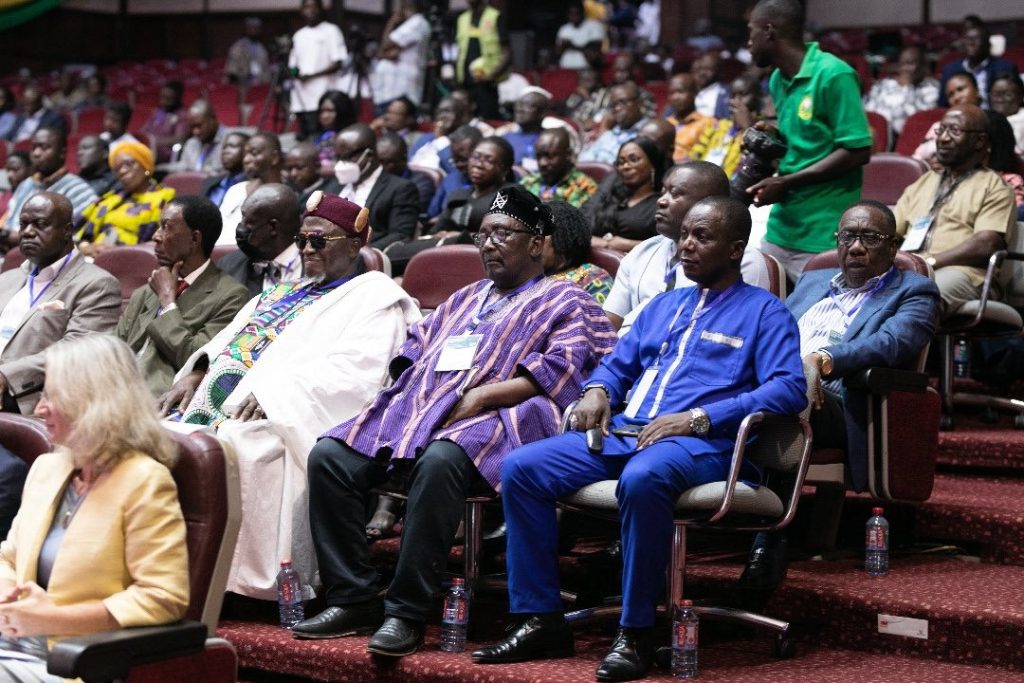
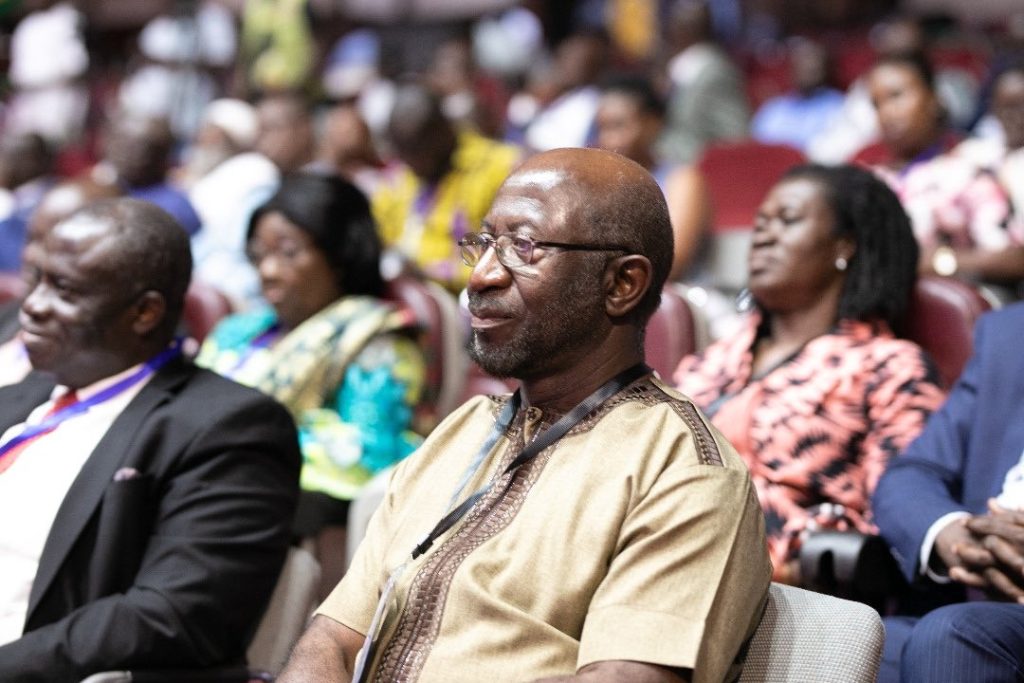
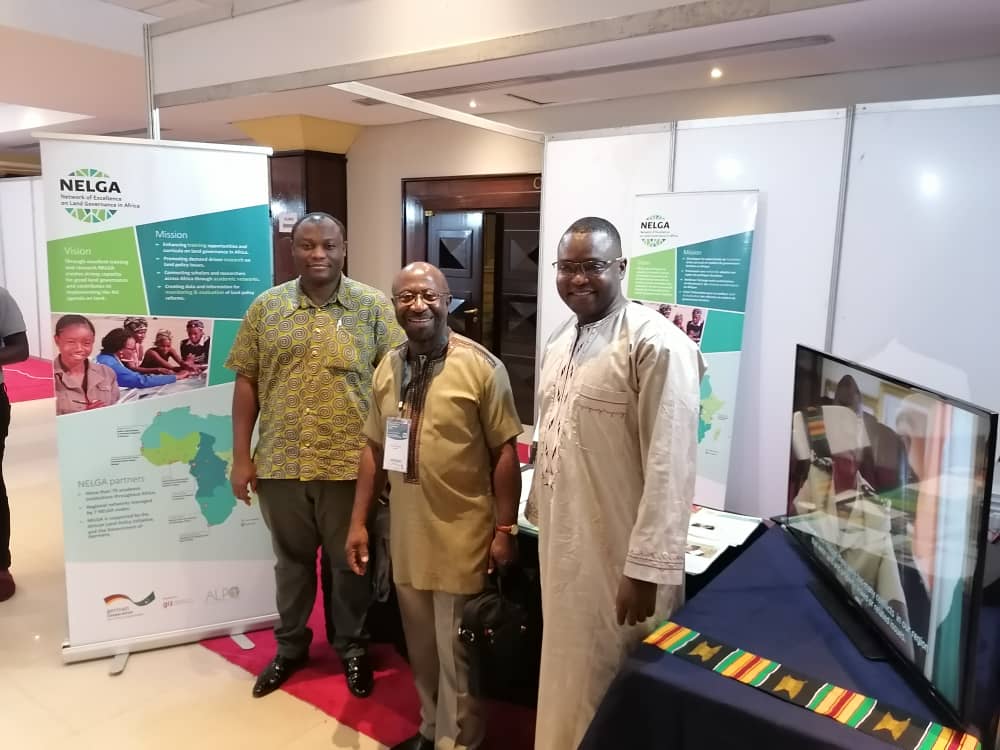
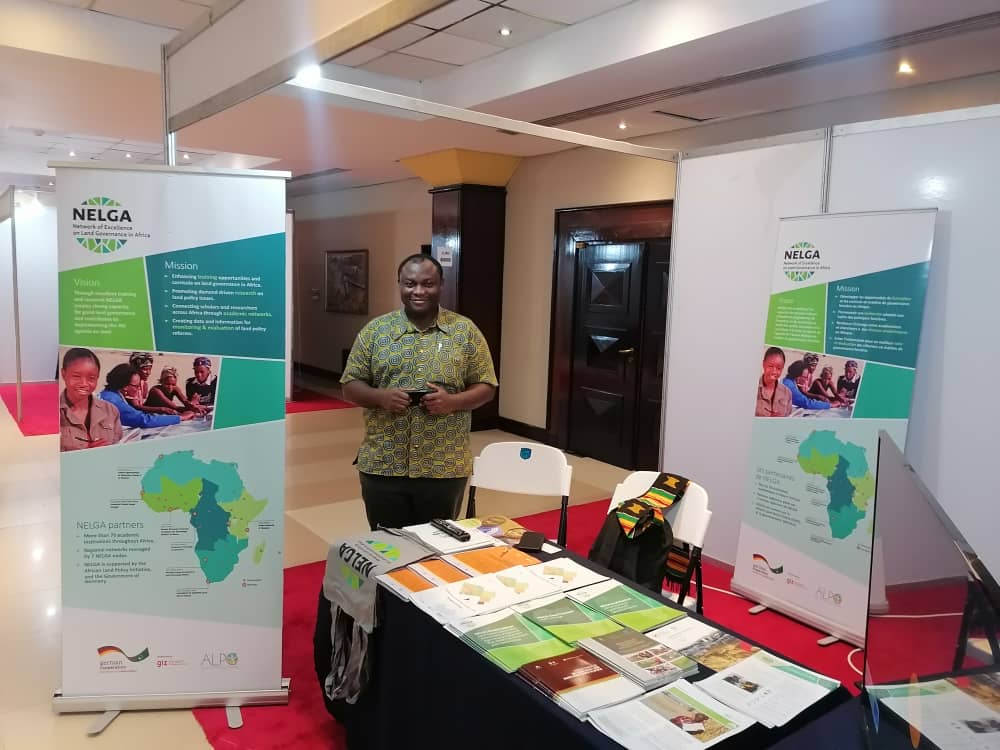
Stakeholders in the Land Sector Validate the NELGA Strategy
Addis Ababa, November 23, 2022 (ECA): Land stakeholders in Africa, through the support of the Africa Land Policy Centre at the United Nations Economic Commission for Africa (ECA), held a validation workshop on the Network of Excellence on Land Governance in Africa (NELGA) strategy for 2023 – 2027. The five-year plan provides a road map to drive NELGA’s operations and programming on the AU Agenda on Land and ensure the network’s sustainability.
The NELGA strategy identifies priority actions and measures to ensure adequate implementation of its programming areas, increase knowledge exchange and communication, and improve, scale up and coordinate sustainable actions among network research areas in policy spaces.
The strategy was developed through an inclusive, consultative and participatory approach with NELGA members, government and land stakeholders. Joan Kagwanja, Coordinator of the ALPC at ECA, applauded the existence of the strategy, which guides the network to document and maximize positive land administrative systems for Africa. She shared that the document serves as a crucial execution tool for NELGA to identify and implement programming actions that address various land challenges and thereby contribute to an improved land governance landscape in Africa.
The strategy was developed with technical support from ECA and funded by the German Development Cooperation.
NELGA Looks into Cameroon Land-Labour Market
Investigates New Ways to Connect New Land Graduates to the Labour Market
“African problems require African solutions. Academic skills, industry needs and employment realities must be in sync and supported by relevant land policies or economic frameworks which jointly support the development of our region.”
Rose Chindji, NELGA Support Coordinator and Researcher at the University of Yaounde 1
The workshop on Land-related Labour Market organised by the Network of Excellence on Land Governance in Africa (NELGA), Central Africa hub in Cameroon, kicked off in Yaoundé on October 21 with a definite call for African countries to develop a road map on the integration of land professionals into the workforce, and inclusive land employment mechanisms, especially for women and youth.
” Many Africans with advanced qualifications find that their university degrees are simply not enough to land a job in the market. We need commitment from our tertiary and government bodies to ensure the eradication of divergence between labour market needs and skills of graduates in Africa,” Cameroons Commissioner of Environment and Nature Protection, Paul Tchawa told participants at the workshop held in Yaoundé. Tchawa said that “working on land and employment requires collaboration with all stakeholders to reflect on how to bridge the gap between the needs of employers in the land sector and the skillset and knowledge graduates acquire during their studies.”
The convergence, which focuses on the land-labour market challenges for young graduates, is hosted by the University of Yaoundé 1, NELGA’s regional hub for the region, with the support of the Federal Ministry for Economic Cooperation and Development (BMZ) and the German Development Cooperation (GIZ). The African Center for Economic Transformation reveals that nearly 50% of current university graduates in Africa do not find jobs and the continent is expected to absorb 122 million new entrants to the labour force during this decade. African education systems have been oriented towards obtaining a qualification rather than acquiring skills and competencies to promote successful integration into work.
Representatives from the government of Cameroon, land researchers and stakeholders discussed strategies to reduce the mismatch between the labour market needs and skills of many land graduates in Africa. NELGA’s Programme Manager, Desire Tchigankong, explains that the mismatch between the labour market needs and skills of many graduates in Africa is highlighted by the GIZ-Strengthening Advisory Capacities for Land Governance in Africa (SLGA). “To meet the requirements of the employing organisations, students must acquire the relevant knowledge and skills to effectively contribute to better land governance systems and economic development,” explains Tchigankong.
Participants discussed and designed a roadmap for Cameroon to improve employment quota in the land-labour market, especially for women and the youth, and improve land industry labour integration in the Central Africa region.
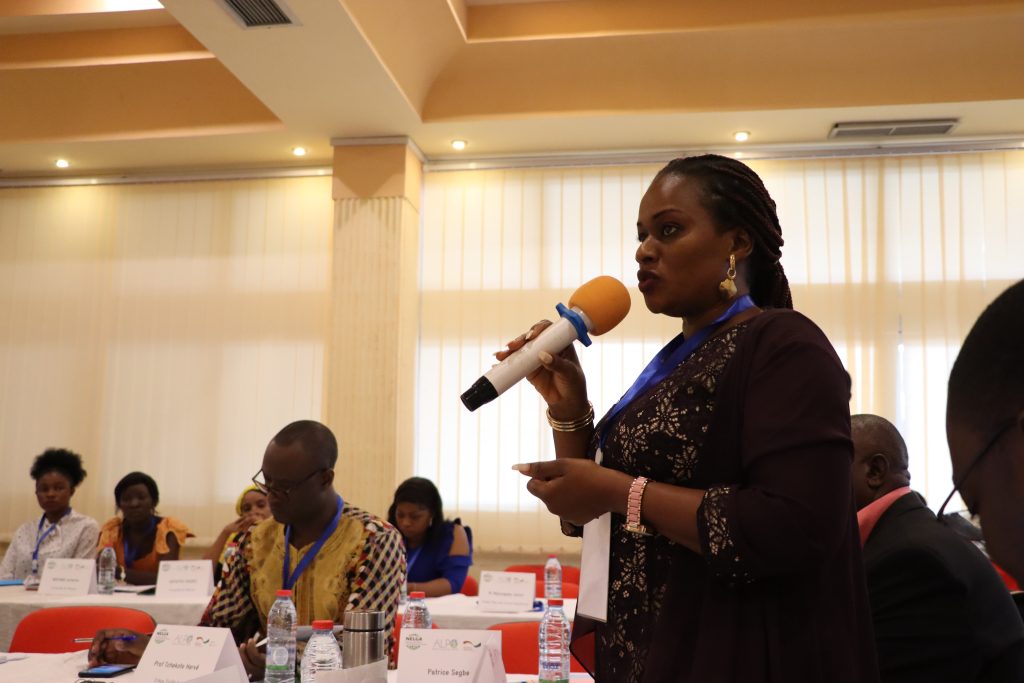
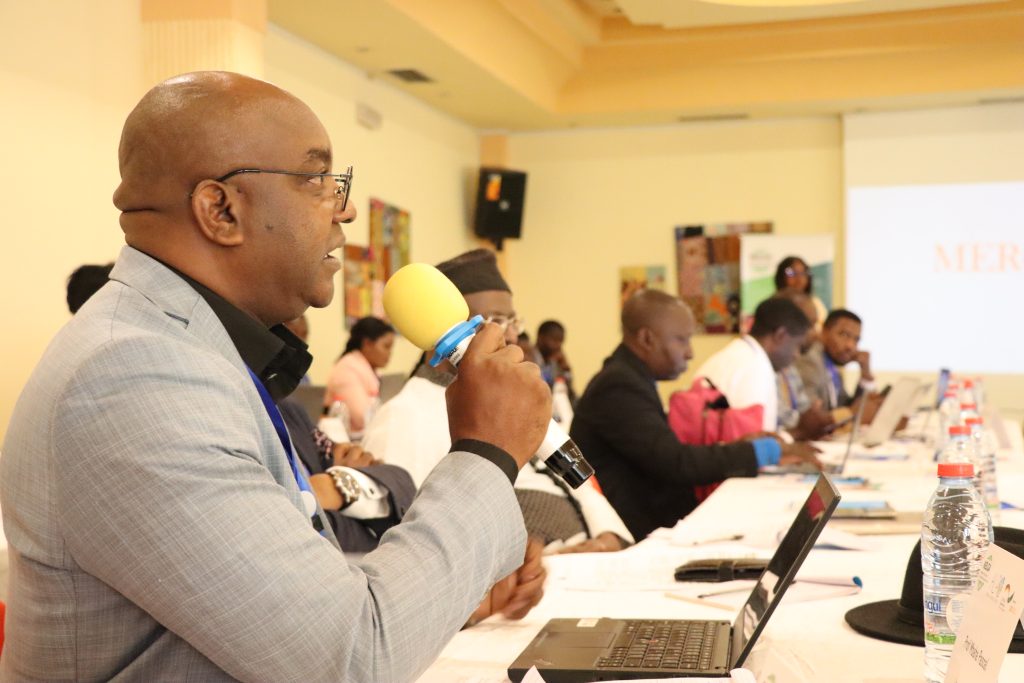
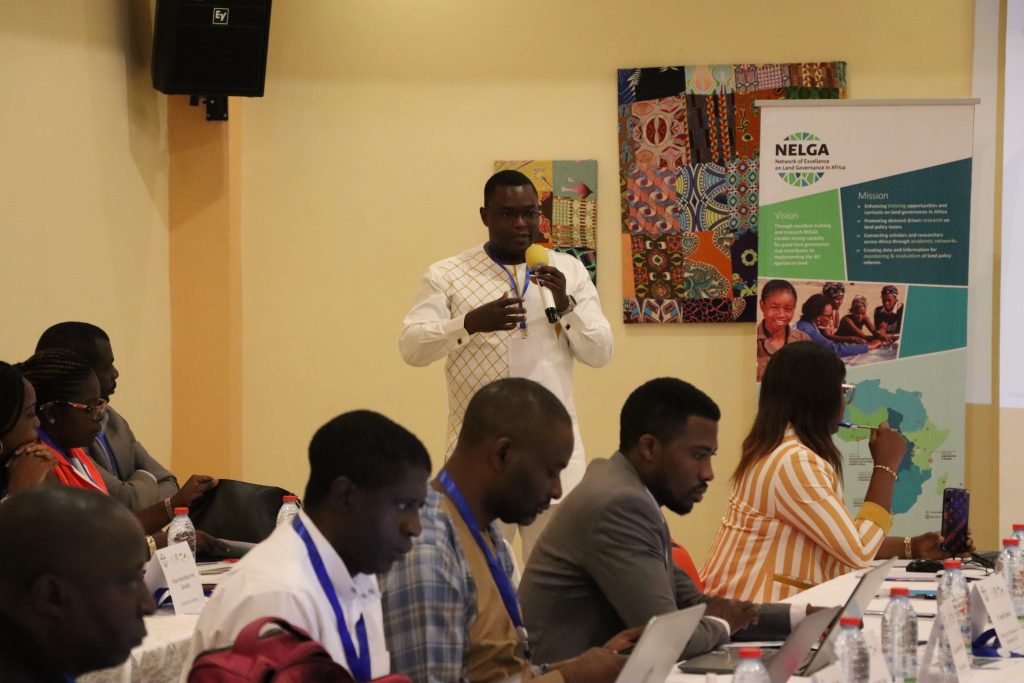
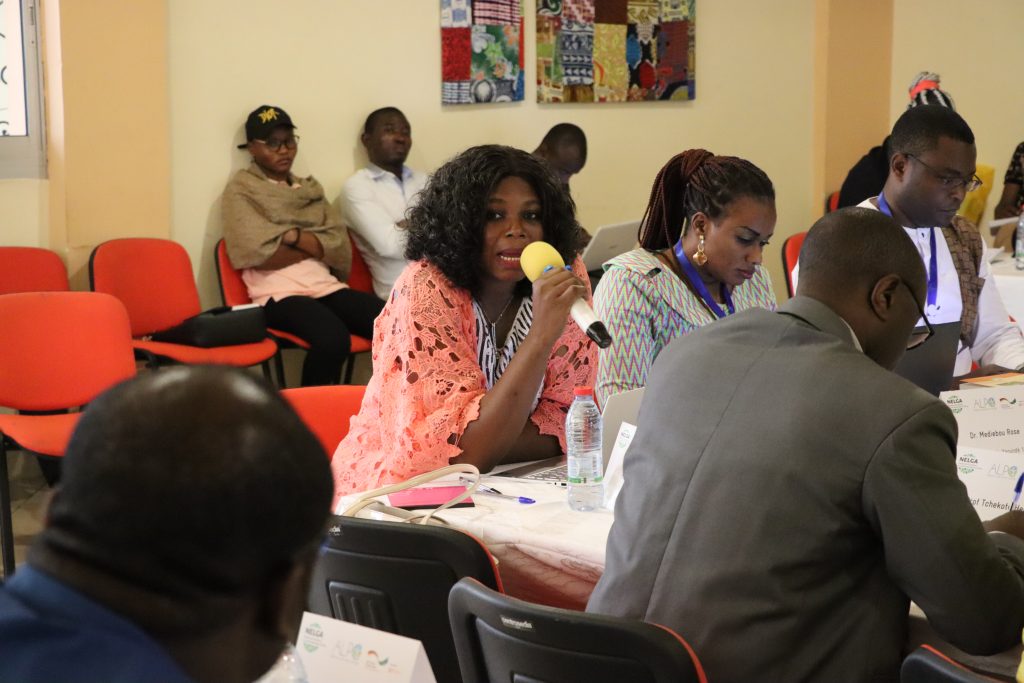
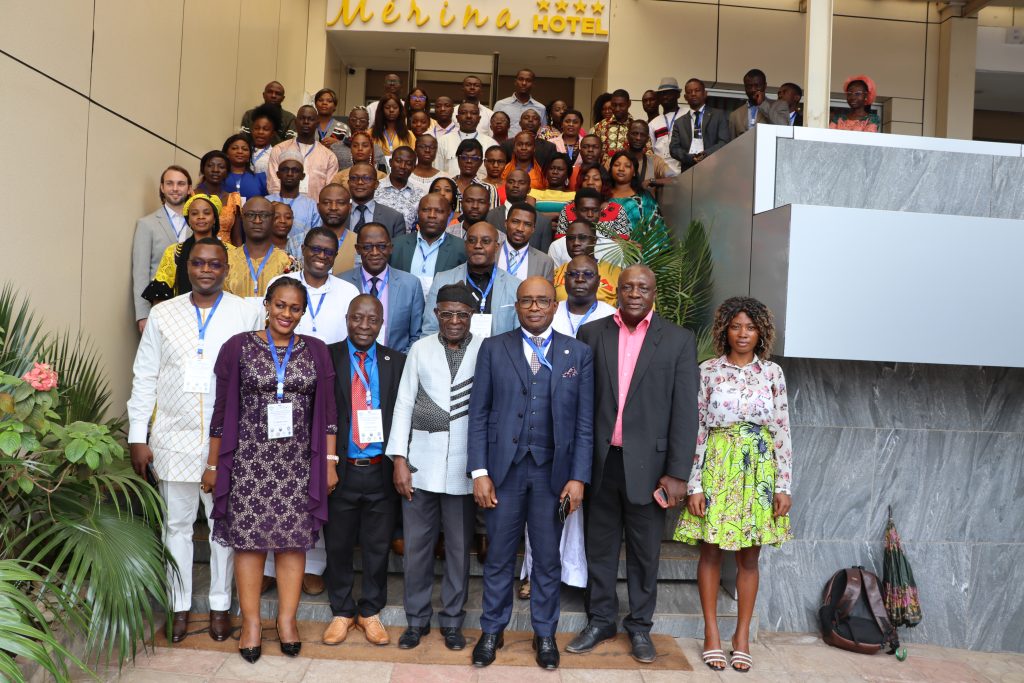
Here’s How to Write a Good Research: NELGA to Host Workshop on Scientific Writing
Photo by Clay Banks on Unsplash
From October 25-28, 2022, the University of Zambia (UNZA) workshop on effective scientific writing will strengthen researchers’ skills in good quality research writing on land in Africa.
The workshop, Â in partnership with NELGA Southern Africa hub at Namibia University of Science and Technology (NUST) Department of Land and Property Sciences, invites lecturers and researchers to its UNZA-hosted Writers Workshop in Lusaka, Zambia.
The workshop is expected to influence the scientific writing skills of researchers, including Master’s and PhD candidates at NELGA member universities in the Southern African region while enhancing research collaboration.
Researchers will find inspiration from leading experts and writers on practical writing skills, especially in creating effective research communication bridges and visibility, as they build skills on H-Index, citation impact, and social impact factors in academia and focus on scientific publications. Participants will be expected to identify obstacles in transmitting quality scientific writing and submit draft research pieces for further engagement and publication.
The workshop is organised through the support of the German Development Cooperation’s (GIZ) Strengthening Advisory Capacity on Land Governance in Africa (SLGA) Program.
For more information, visit NUST Department of Land and Property Sciences
NELGA Review Meeting: Taking stock of 5 years of Progress in Meeting the AU Land Agenda
Five years after the launch of the Network of Excellence on Land Governance in Africa (NELGA), some 20 representatives of the network gathered in Windhoek from 27-30 September 2022 to discuss progress in implementing the African Union (AU) Land Agenda. Many agreed that much progress had been made in building the capacity of institutions of higher learning and research to enhance training and research that responds better to the demands of member states. It is now essential to focus on scaling up curricula development, training, research and dissemination of knowledge on priority issues.
The planning and review meeting offered an excellent opportunity to take stock of how NELGA capacity building, data repository, knowledge management, and policy engagement actions support national and regional land gaps and priorities in meeting the AU Land Agenda. The meeting, convened by AUC-ECA-AfDB’s African Land Policy Centre, marked the first official internal gathering of the continental network since the onset of the COVID-19 pandemic.
The members commended the outcomes and wealth of knowledge from years of work, especially on policy engagement, and encouraged members to develop plans that facilitate engagement with key decision makers, including all arms of government, civil society, etc. In planning the future of the network, members called on ALPC, its technical partners, GIZ and the nodes to develop agreements among all parties to facilitate operations and ensure result convergence on land governance priorities on the continent. Participants called on the NELGA secretariat to develop a continental research agenda and policy dialogue framework based on identified priority areas by the AU.
The meeting hosted by Namibia University of Science and Technology (NUST), the NELGA node for Southern Africa, had participants from NELGA regional hubs, implementing partners, academic institutions, GIZ as a technical partner and international organisations. The nodes showcased strides in developing new academic programs, two journals hosted by NELGA North Africa and East Africa, research centres, and land governance innovative tools in the land policy spaces across West Africa, East Africa, North Africa, Central Africa, and South Africa.
The ALPC Coordinator Joan Kagwanja celebrated the achievements; encouraged integrated and participatory approaches to land governance issues, emphasised the network’s importance in meeting the continent’s needs; and called on NELGA to undertake action research that would address emerging land issues and whose results and recommendations could be presented at the AU Specialized Technical Committee on Agriculture, Rural Development, Water and Environment The meeting also examined preliminary findings and provided inputs to the NELGA strategy to ensure the network remains sustainable and scalable.
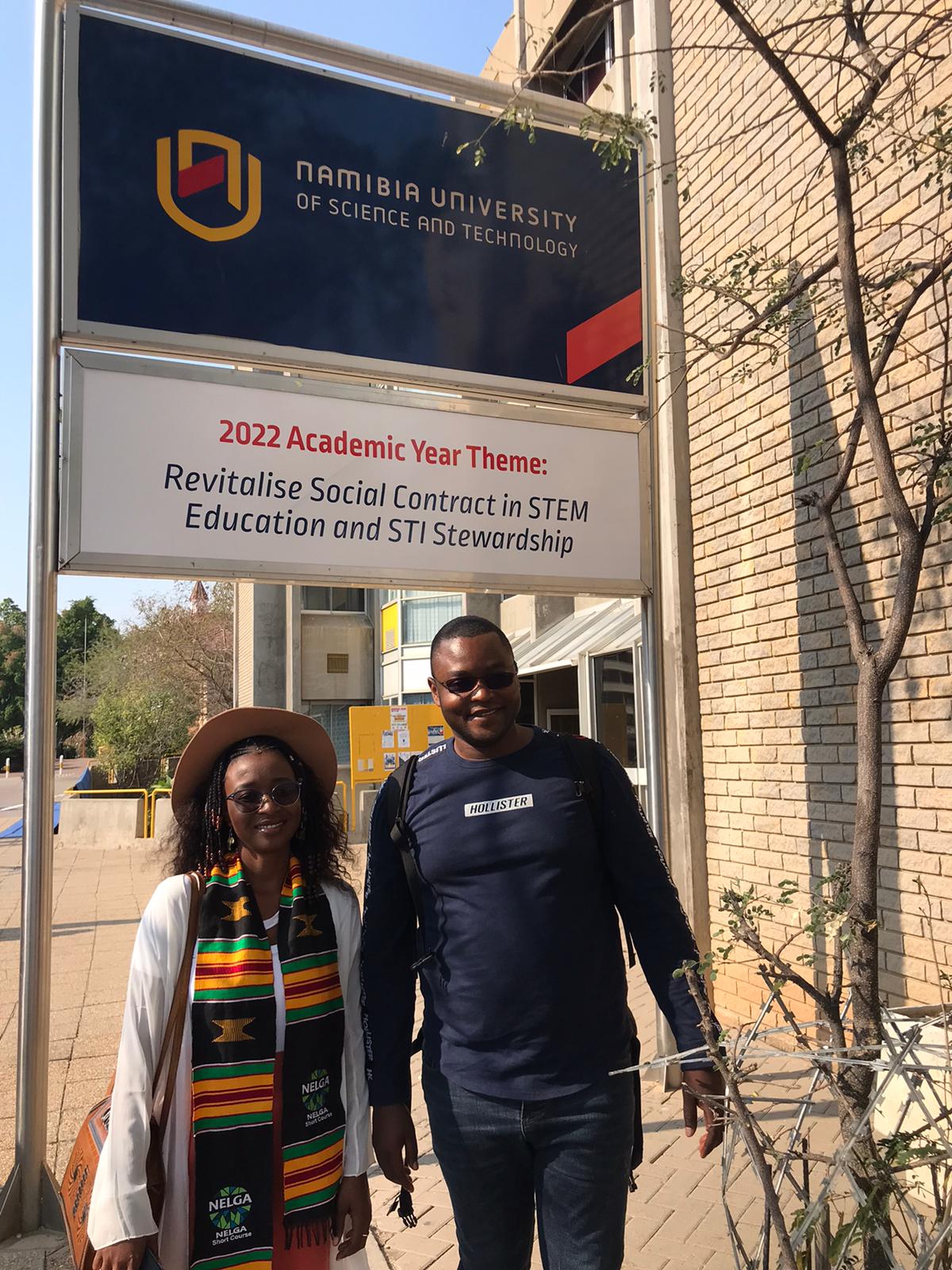
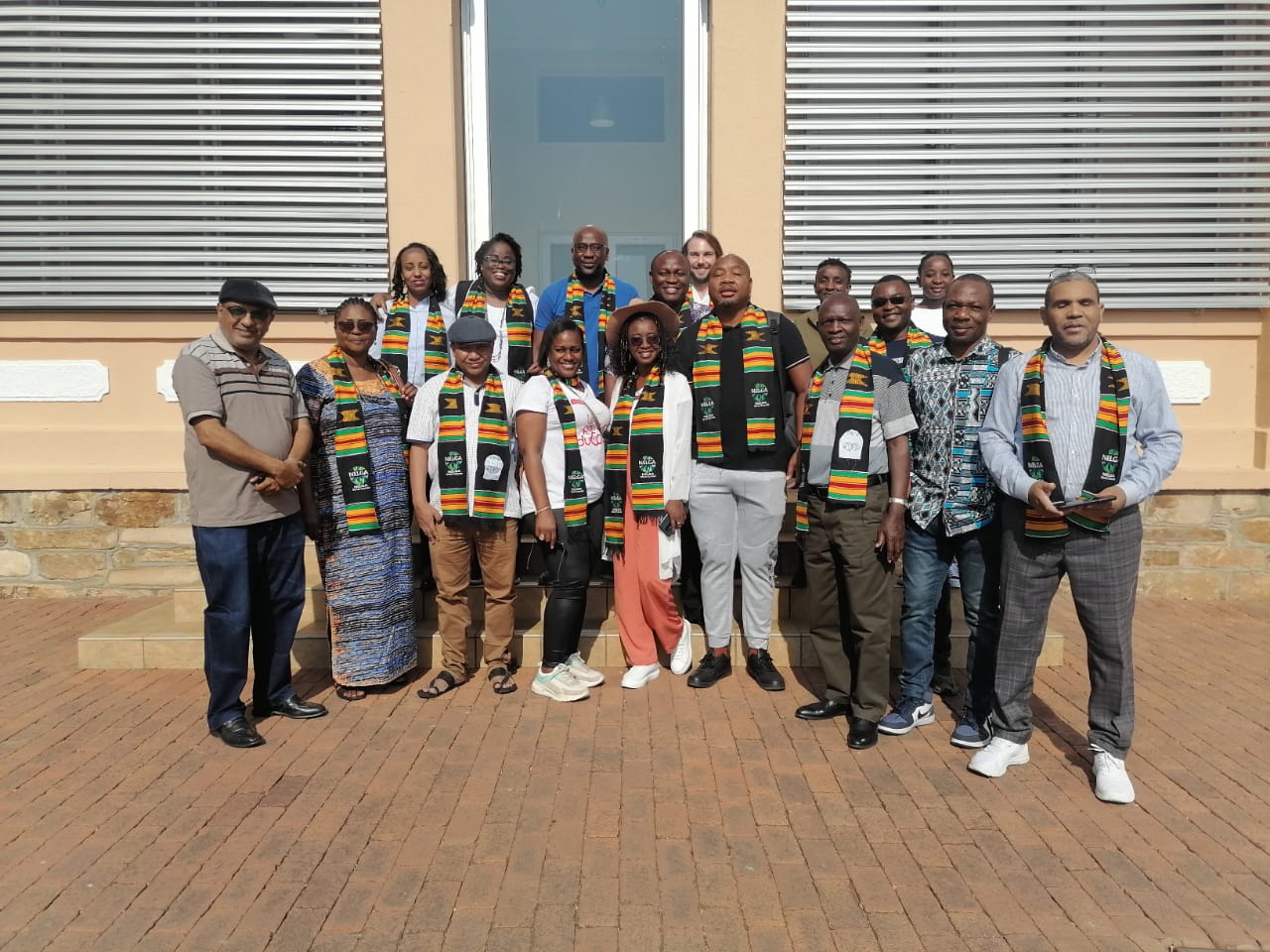
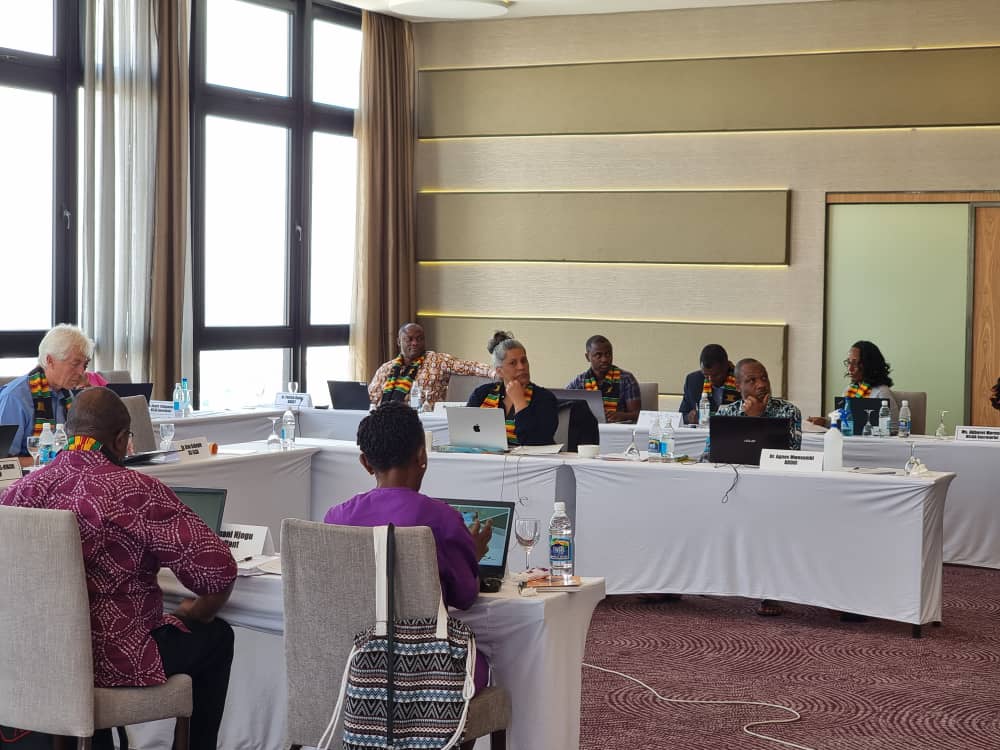
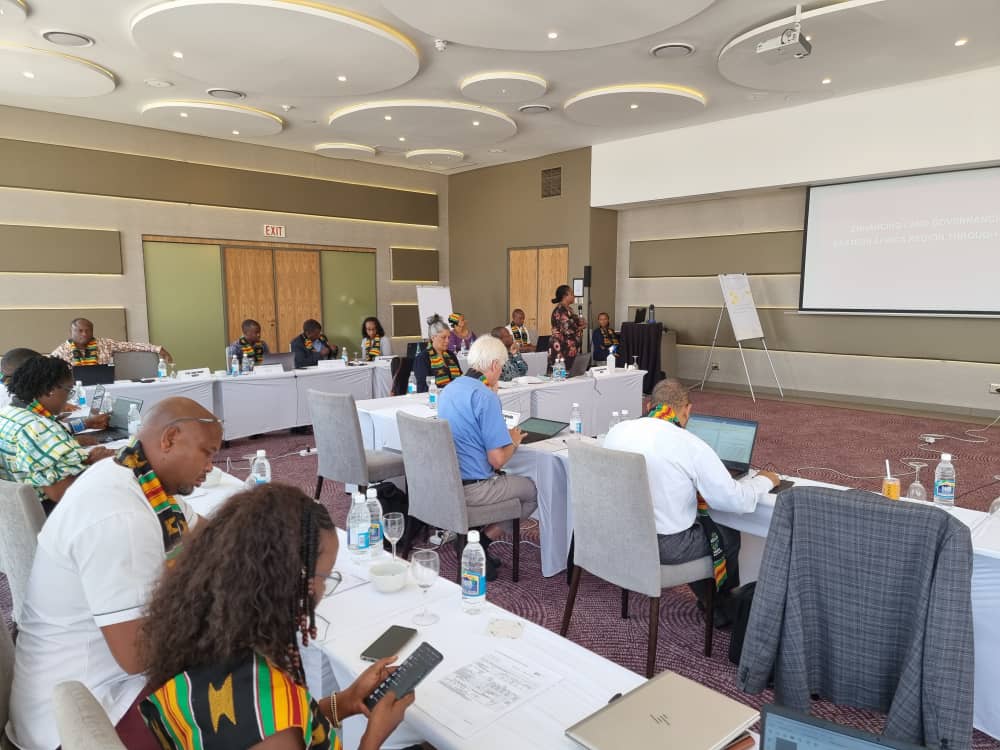
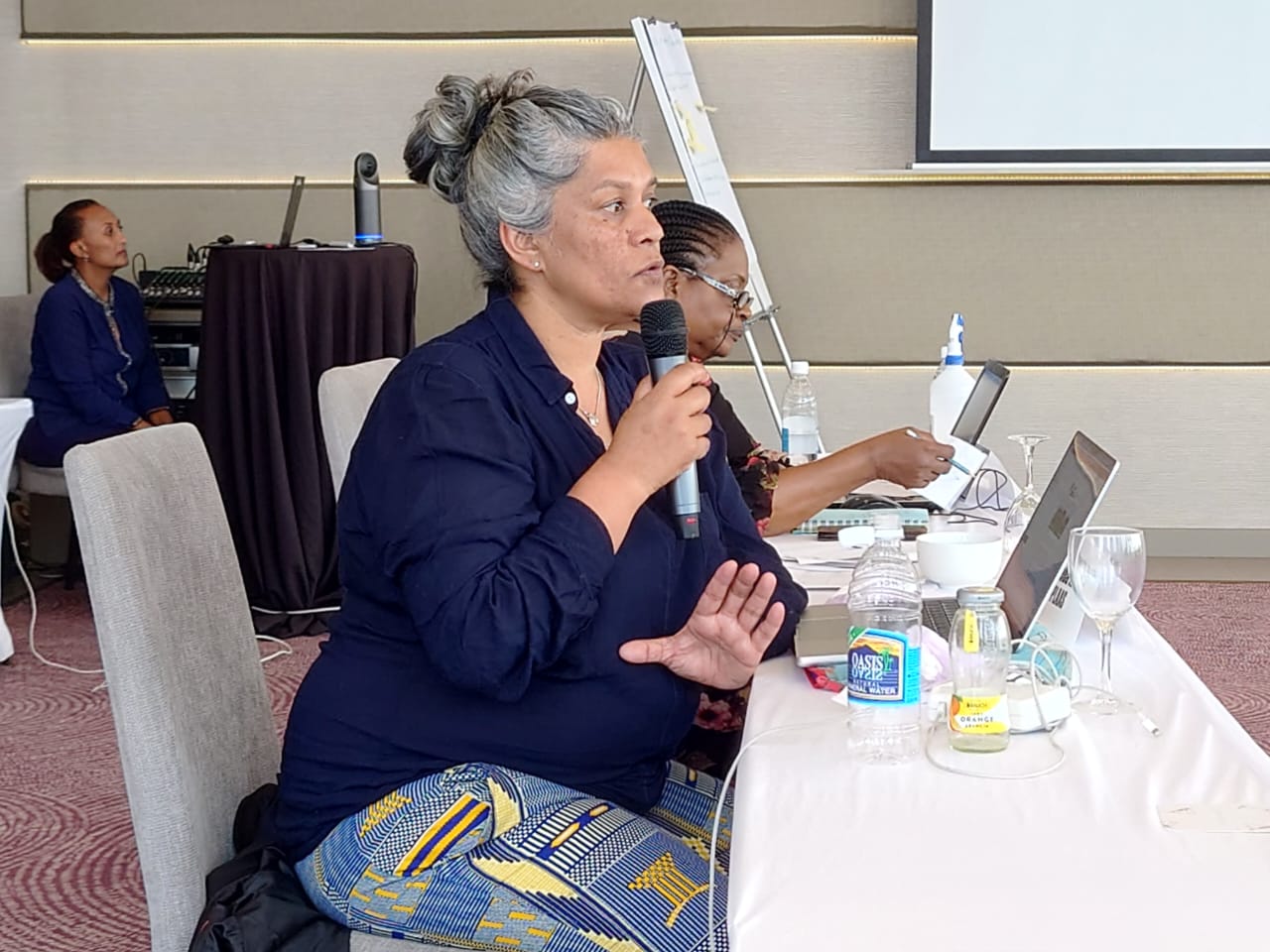
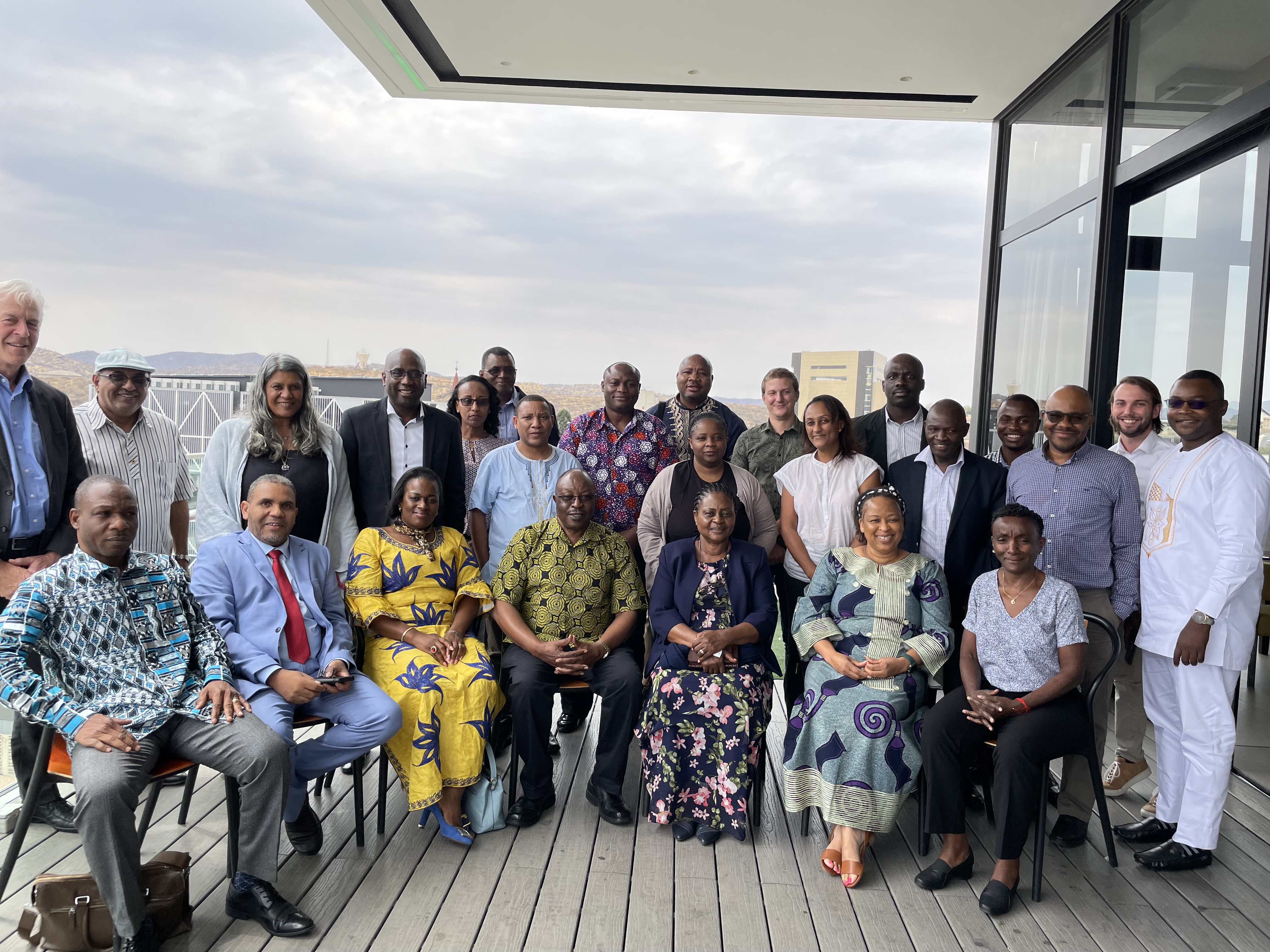
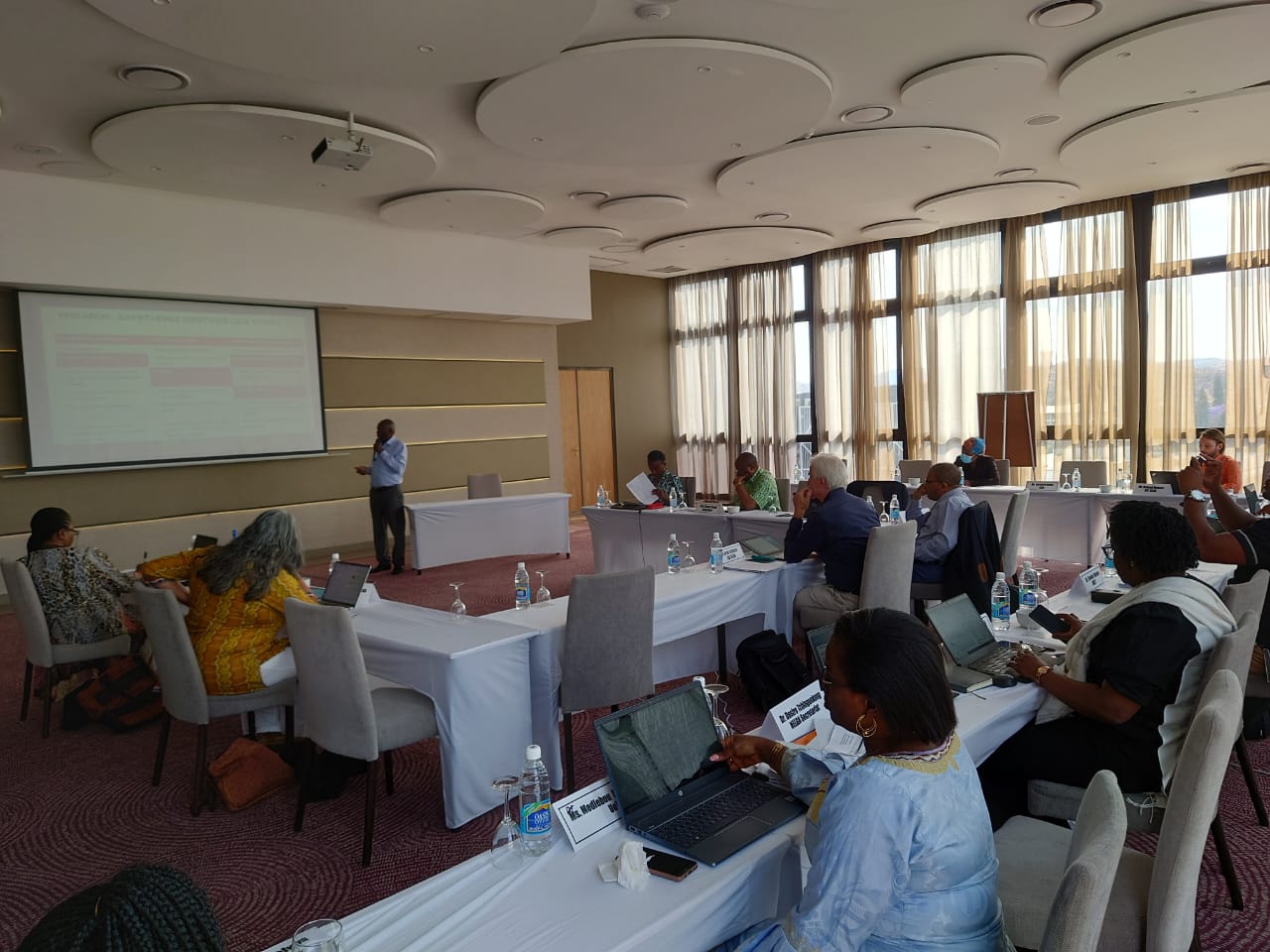
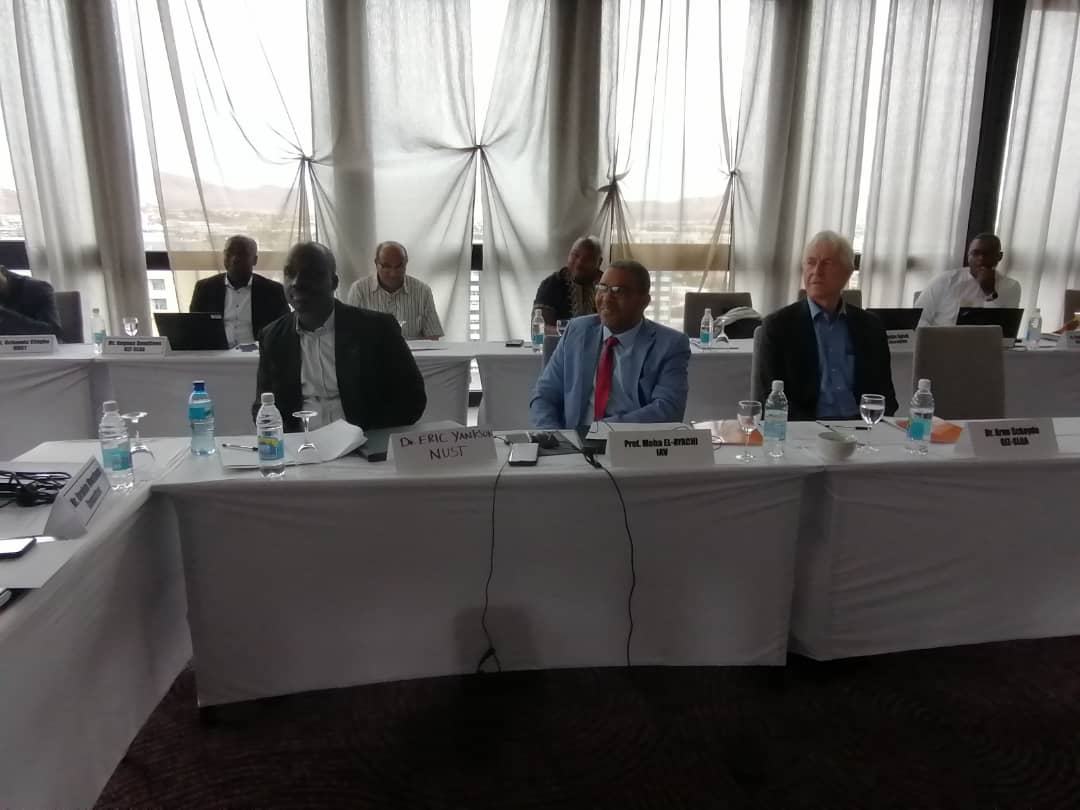
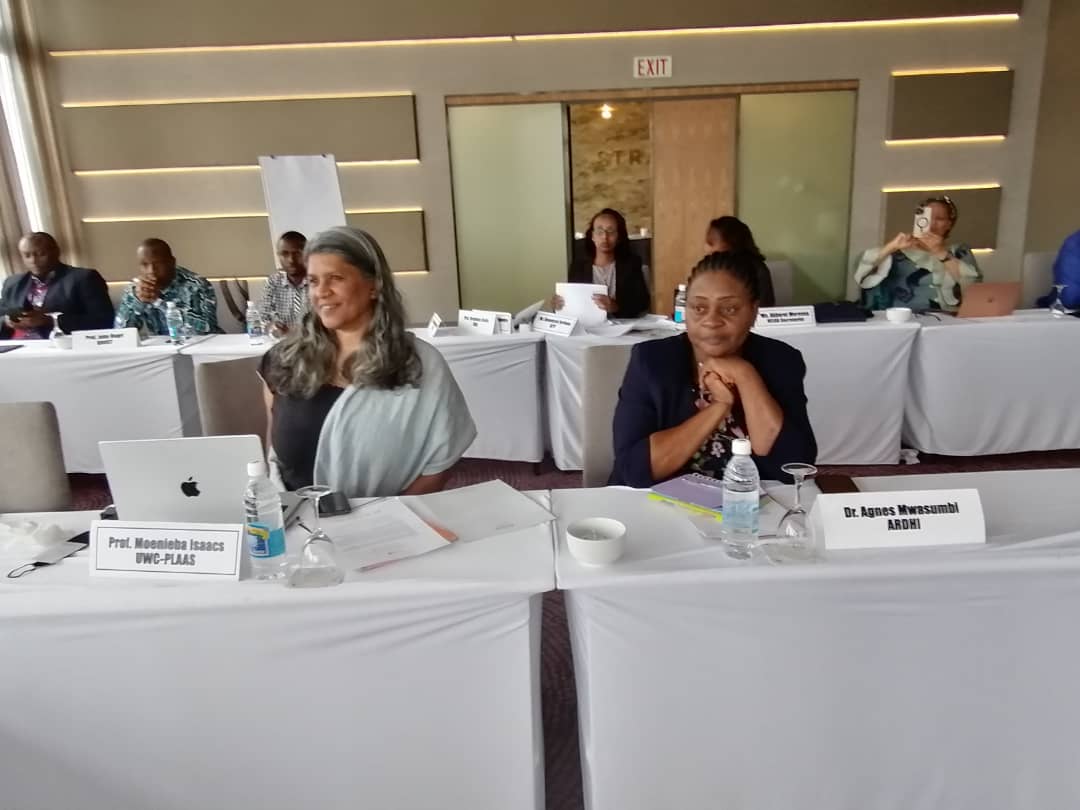
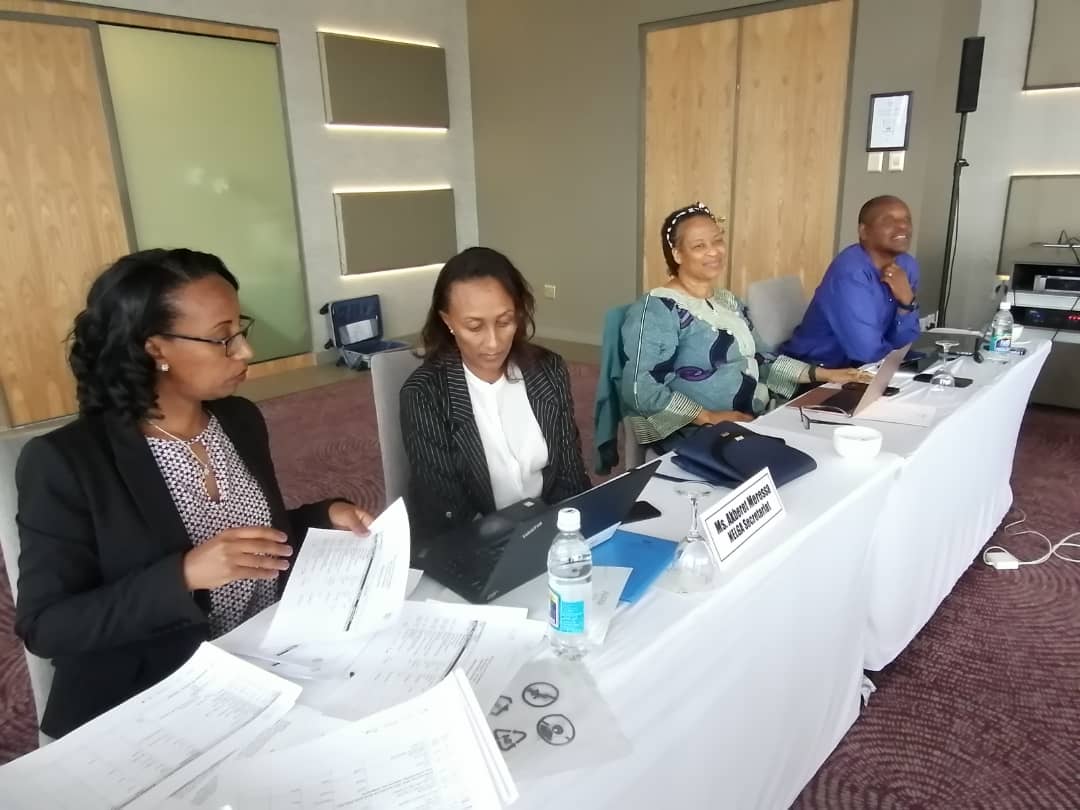
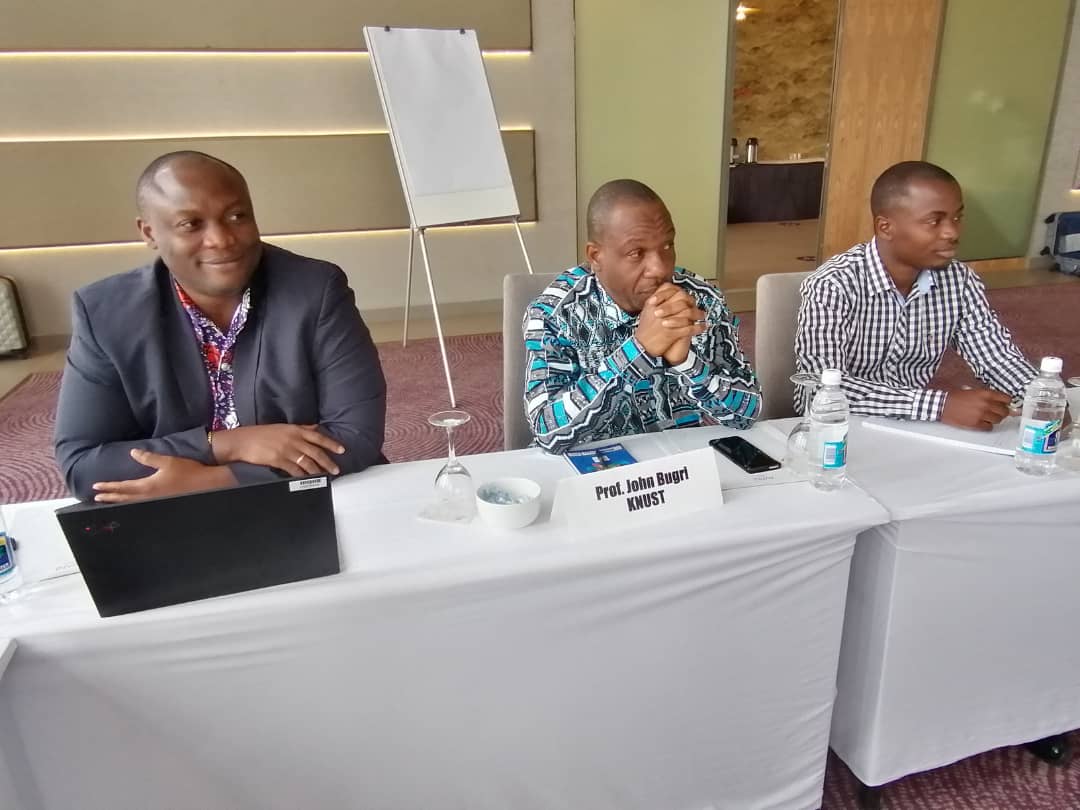
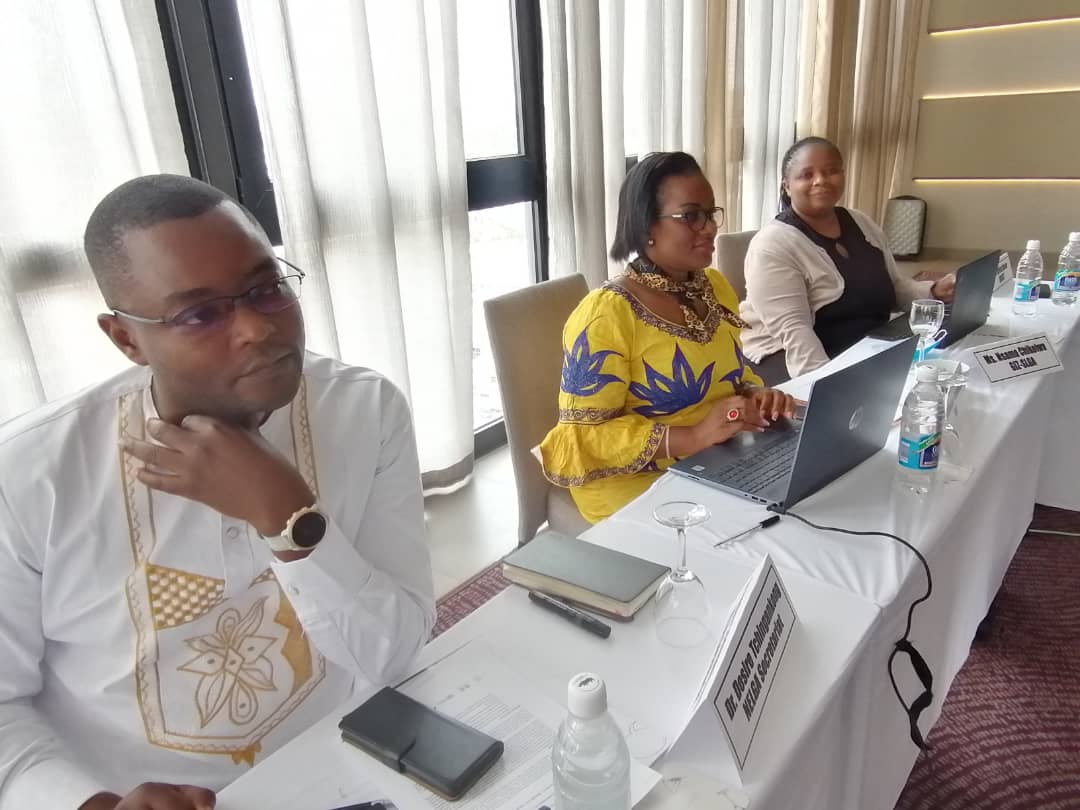
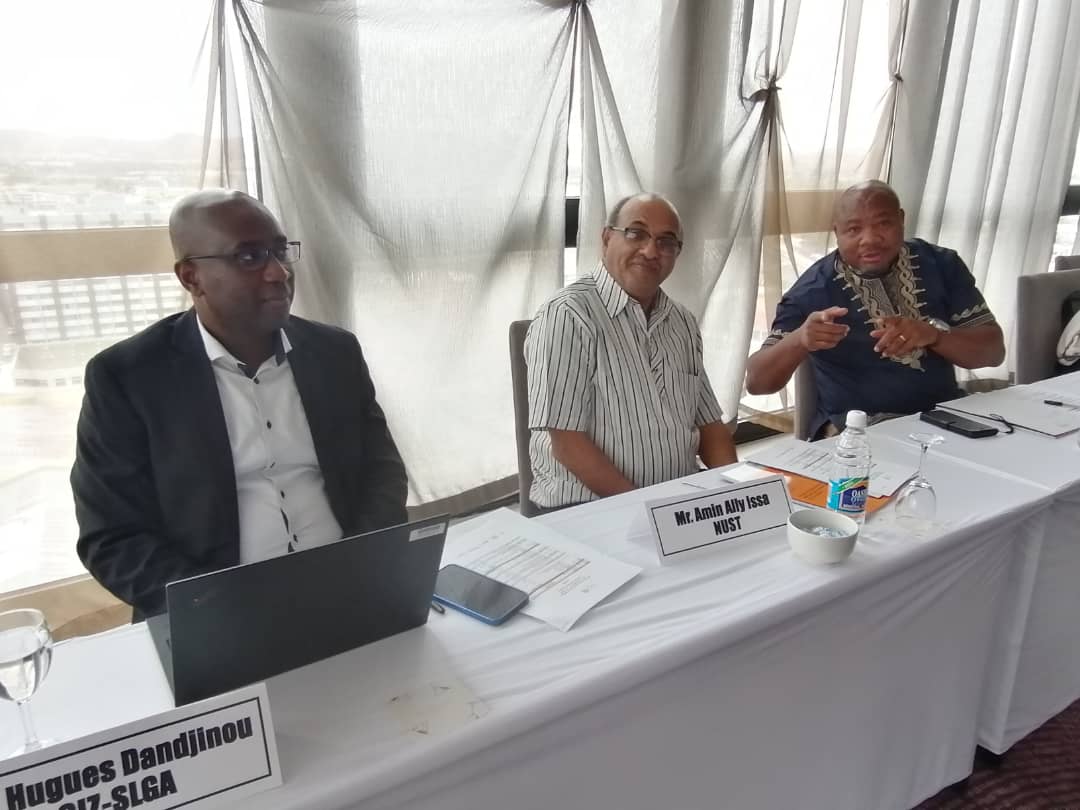
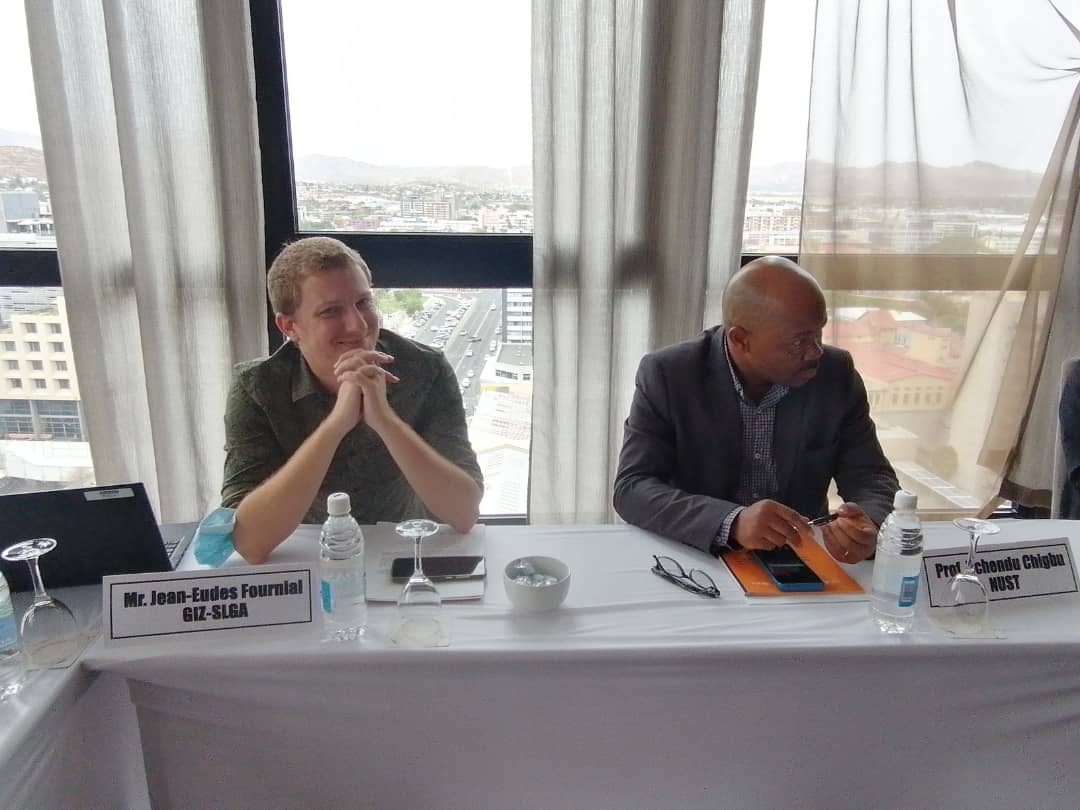
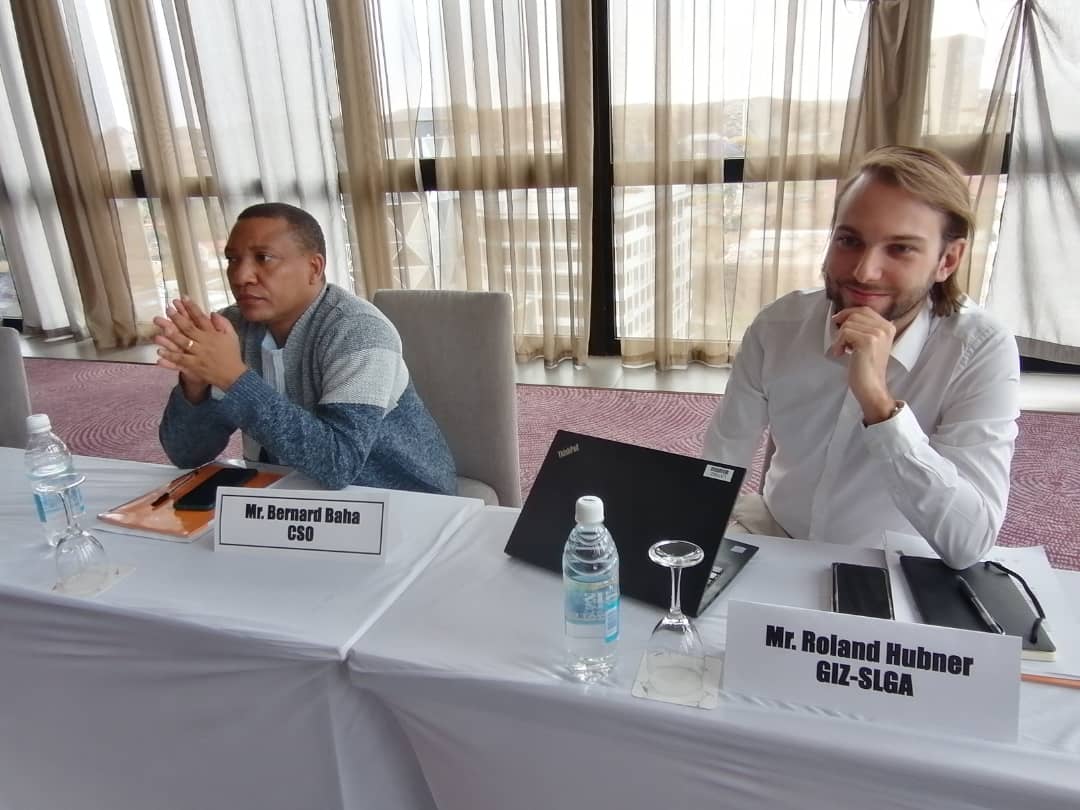
Windhoek 2022: NELGA Plans Strategy Meeting to Review its Research and Technical Agenda for Africa
As a partnership of over 70 higher institutions in Africa, NELGA contributes to the implementation of the AU Agenda on land through formal training and education, research and analysis, and monitoring and evaluation of land policy to address land-related challenges that hamper Africa’s transformation agenda for inclusive growth and broad-based development.
To ensure NELGA meets its mandate, the network will hold a planning and review meeting in Windhoek, Namibia, to identify and strengthen its methodologies and actions in meeting Agenda 2063. The meeting is from September 27 – 30, 2022 and is hosted by NELGA Southern Africa Node. It is the first physical internal meeting of NELGA and its core partners since the COVID-19 pandemic. The meeting will provide a platform to plan, review and re-align the program’s priorities in meeting the AU Land Agenda.
This meeting is convened by the African Land Policy Centre (ALPC) and will bring together the NELGA Nodes, ALPC and GIZ.
This meeting is convening with the objectives to:
- Review Progress of the 2021- 2022 Workplans to highlight Progress, draw Lessons and examine modalities to address challenges.
- Examine the 2022-2024 Work plans to explore potential areas of synergy and identify areas and modalities for collaboration.
- Explore opportunities arising from the ALPC Research and Technical assistance programme.
- Raise awareness of NELGA’s communication strategy and branding guides to enhance NELGA’s efforts on communication at internal and regional levels.
- Review the preliminary draft of the NELGA Strategy, Business Plan and MEF with a view-enhancing quality for finalization.
- Examine and provide feedback on the ToRs and proposed membership of the NELGA Technical Advisory Committee.
Webinaire NELGA Afrique du Nord : La blockchain au cœur du développement numérique du secteur foncier
La technologie blockchain touche progressivement à tous les secteurs dont la finance, l’énergie, l’assurance ou bien encore la santé. Il est grand temps pour la blockchain d’ancrer son innovation dans le secteur foncier afin d’y apporter la transparence, l’automatisation contractuelle et la traçabilité nécessaires sur un secteur où la preuve, l’historique exhaustif et l’authenticité sont essentielles.
Nous prenons le premier pas vers cette innovation en entamant une discussion entre les acteurs du foncier au Maroc et experts de la Blockchain dans le webinaire “La Blockchain au cÅ“ur de l’innovation numérique du foncier”.
L’Institut Agronomique et Vétérinaire Hassan II organise à travers son hub NELGA Afrique du Nord en collaboration avec ETAFAT et dans le cadre des travaux de recherche sur “L’étude de la technologie Blockchain et ses applications au Foncier : Cas du Maroc” entrepris par Rim Borija.
À travers les interventions d’experts du Maroc et de l’Afrique, nous allons introduire la Blockchain et son potentiel énorme, aux acteurs de l’écosystème foncier au Maroc.
D’éminents panéliste au rendez-vous le 22 septembre à 18h
Dr.Omar Benaicha: Chercheur en Blockchain et Transformation Digitale.
Mohammed Ibrahim Jega: co-fondateur de Domineum Blockchain Solutions.
Samir Bennani: Blockchain Consultant.
Rim Borija: Etudiante en 3ème année en Ingénierie Topographique de l’IAV Hassan II et Chercheuse en Blockchain du Foncier.
Kamal Ben Addou Idrissi: Directeur général de ETAFAT.
Moha El-Ayachi Professeur à l’IAV Hassan II et coordonnateur du réseau NELGA, Afrique du Nord.
Ce webinaire est ouvert aux IGTs du secteur privé et public, Notaires, Experts Fonciers ainsi qu’aux Experts de l’IT et la Blockchain…
Faites part d’une réflexion du futur et inscrivez vous gratuitement sur.
Date : 22 Septembre 2022
Heure: 18H
Vous êtes cordialement invités au webinaire du NELGA NA sur “La blockchain au coeur de l’évolution numérique du secteur foncier” le 22 sept. 2022 à 18:00 GMT+1
Veuillez vous inscrire via le line :
https://us02web.zoom.us/meeting/register/tZEtdOmgrDgtHt0nYq_BETV_gRc_MNRfuVv0